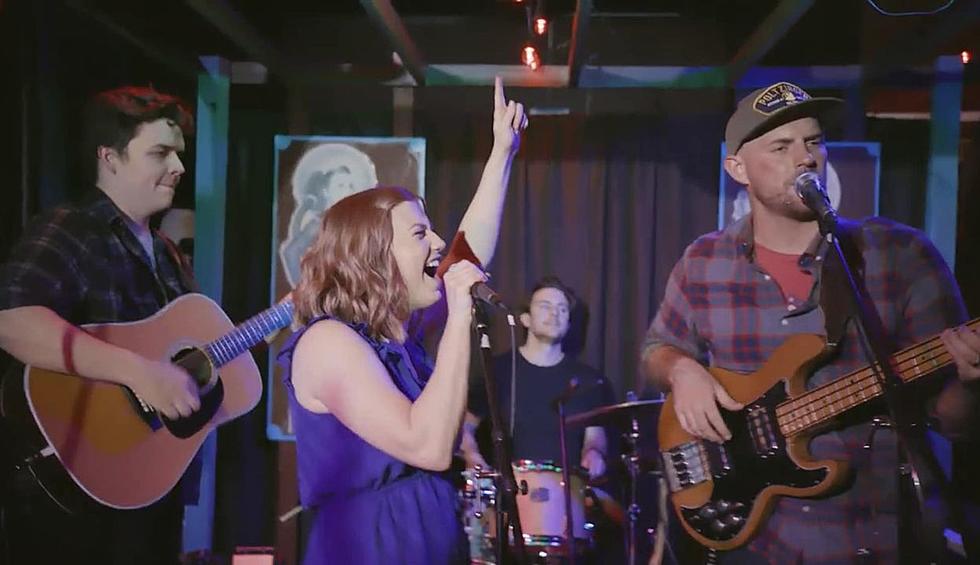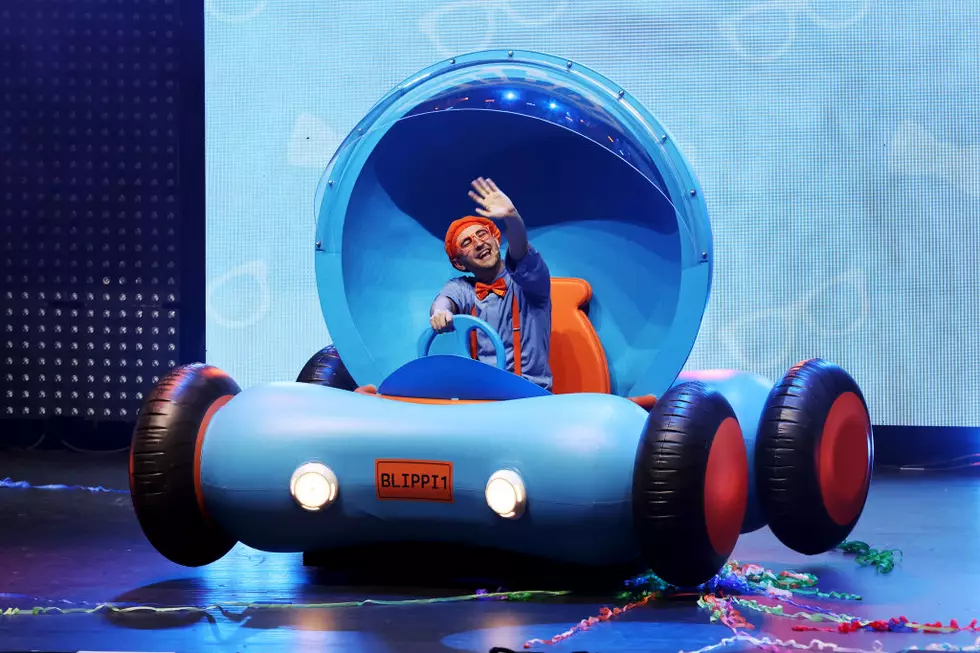
A Visit with Jeff Ostenson of North 40 Productions
It's a real privilege to visit with Jeff Ostenson - one of the most creative minds in the Wenatchee Valley.
I first came to know him as one of the band members of "Fat Happy." Since the mid 2000s, Jeff has been the Executive Producer & co-founder of North 40 Productions. He is also a co-owner of Mercantile.
A couple weeks ago, Jeff Ostenson and one of his North 40 partners, Charles Atkinson stopped into our studio to promote the Wenatchee premiere of their documentary “WE'RE NOT LOST: THE LAST RIDE OF THE SHOW PONIES” The full length film followed the Show Ponies band members on their final few weeks of a "goodbye tour" before calling it quits.
North 40 Productions, is a Wenatchee team that produces everything from “30-sec TV spots and feature-length documentaries - and pretty much anything in between.” Most of their work is on short documentaries.

I was able to catch up with Jeff just before he was getting on a plane for the Los Angeles premiere of the Show Ponies documentary.
Connor: Thank you for taking time to visit. First question: What are some of the unique challenges and opportunities of running a production company in a smaller city like Wenatchee?
Jeff Ostenson: At North Forty, we’ve evolved into a versatile production house with a lot of tools in the toolbox. We can do 30-second TV spots to feature documentary films. Wedo explainer animations and brand films, and everything in between. In short, we feel we have an answer for pretty much any media challenge that may come our way for any client, both small and large. Part of addressing the market in NCW has been to expand our reach across the West. About half of our work is outside NCW, from Alaska to California, with many of our productions happening around Puget Sound. Like all small consulting businesses, at North Forty, balancing the need to line up enough projects to keep the doors open while not having so much work you can’t get it done and everyone burns out is pretty much the most challenging thing and what keeps me up at night.
C: Can you walk us through the process of creating a compelling narrative for a client's project, from ideation to delivery?
JO: This is a process that we’ve honed over the last two decades. Our first priority is to learn as much about our clients and the story they want to tell. We then explore their intended audience, how new media will reach them, and what the audience already knows and feels about our client and their story. Basically, we learn everything we can about our client and the project, and then we brainstorm ways to successfully reach the intended audience, inspiring them to some form of action.
C: How does North 40 Productions stay up-to-date with the latest technologies and trends in video production?
JO: We watch a lot of films, go to industry conferences, take online and in-person courses, and talk about film all the time! Basically, we’re obsessed with telling stories and always improving our craft.
C: What do you think sets your company apart from other production houses, and what do you think are your greatest strengths as a storyteller?
JO: There are several other great production houses in NCW. What we hope sets North Forty apart is our experience (17+ years), project management (we believe the process is equally as important as the art form), and guiding our clients through the entire process, from concept development all the way to final delivery.
C: How has the COVID-19 pandemic impacted your work and the industry as a whole, and what changes do you think will persist in the post-Pandemic world?
JO: Fortunately, when the Pandemic hit, we were working on some relatively large, long-term projects (18 months to 2 years), and we were able to keep working by editing from home. Also, much of what we do on the filming side is outside, so following Covid guidelines, we were able to resume filming pretty soon after the lockdown. The pandemic also increased the need for using media to share information and stories vs. in person, which increased demand. I don’t really see that will change in the near future.
C: How do you approach diversity and representation in your work, and what do you think the industry as a whole can do to become more inclusive and equitable?
JO: Media, especially video, is a great equalizer and allows people to reach out and communicate with other people that share their values. In short, we feel we are a part of building community, albeit digitally. It is incumbent on us to be able to continually expand our ability to offer this service to a more diverse client set. Said another way, documentary films, when done well, share the world from the subject’s perspective. The viewing audience will then likely empathize with their story, expanding the viewer’s perspective of the world around them. We like to think that this makes us better people.
C: Could you tell us more about your co-founding of Mercantile (a work space that provides a vibrant and productive work environment for entrepreneurs, small businesses, creatives) and how it supports and fosters entrepreneurship and creativity in Wenatchee?
JO: Initially, I was looking for a new location for North Forty that my wife, Heather, and I could own. Our friends, Rick and Cory Wray, were looking to invest in downtown, possibly in a co-working space. We joined forces and started to look for a good spot that would work for all of us. Fortunately, the Ellis-Forde building came on the market, and we were able to purchase it. After about nine months of remodeling, we had the Mercantile up and ready for clients. Ever since North Forty has been co-working with about 50 other people who are also members at the Mercantile, it’s amazing to see all the cross-pollination take place. We’ve actually got a bunch of new projects from just working here. It’s also really fun to see people start small with a flex membership, grow enough to have a fixed desk, add a few employees, and maybe move into an office. That’s exactly what we had in mind when we started this place.
C: What advice do you have for aspiring filmmakers and storytellers, particularly those who may not have access to the same resources and opportunities as those in larger cities?
JO: I say this to every aspiring filmmaker who walks through our doors. Painters paint, runners run, skiers ski, and writers write.... Filmmakers make films. With smartphones, there is an extremely low barrier to getting into making films, so go out and make films. Also, nobody starts off with an Oscar-nominated film. You have to make a bunch of bad films to get to the point where you make a mediocre film. So many times, I see wanna-be filmmakers planning their first big film for years and never make it happen. Get out there and make a terrible two-minute film. You don’t even have to show it to anyone. Then make another and then another. Eventually, you’ll start making films that other people might like. On the location question, there are times when being in Central Washington is limiting because it’s harder to connect with others in the industry. However, I think there are also many benefits to being a little isolated; we don’t have many people telling us we can’t be successful here.
Connor: Finally, could you share with us some of your favorite documentaries that you've watched recently and what you think makes them stand out?
Jeff Ostenson:
"Life Animated" - Probably one of the most emotional documentaries I’ve seen. I love the way they use animation to take over visually when there wasn’t any film to use.
"The Cove" - This film shows how powerful documentaries can be.
"My Octopus Teacher" - What a beautiful film that connected so many people to the environment.
Connor: Before you go, could you answer some lightning round questions: What's your favorite variety of apple?
JO: Piñata, formally known as Pinova but that turned out to be a dirty word in Italian so they had to change the name
C: Favorite day of the week?
JO: Friday
C: Nickname your parents used to call you?
JO: No nicknames per se but when I was in trouble my full name came out “Jeffrey Thomas”
C: Song or artist you have been playing a lot in the car or at home?
JO: I’ve been on a Death Cab, Brandi Carlile and Wilco trip lately
C: Name a bucket list place you most want to travel to?
JO: Norway
C: You have friends from out of town. Where are you gonna take them to eat out?
JO: For breakfast - Wild Huckleberry. For lunch - Lemolo. For dinner, Atlas Fare
C: How many cups of coffee do you drink per day?
JO: 1 cup of regular coffee and 1 decaf per day
Connor: Favorite hiking around or near Wenatchee?
Jeff Ostenson: I’m not much of a hiker but you will find me at Squilchuck State Park on my mountain bike
Learn more about how the North 40 Production team can help share your story: https://hellonorthforty.com/
Behind The Scenes Peek at Yellowstone Prequel Filming in Butte
More From KW3






